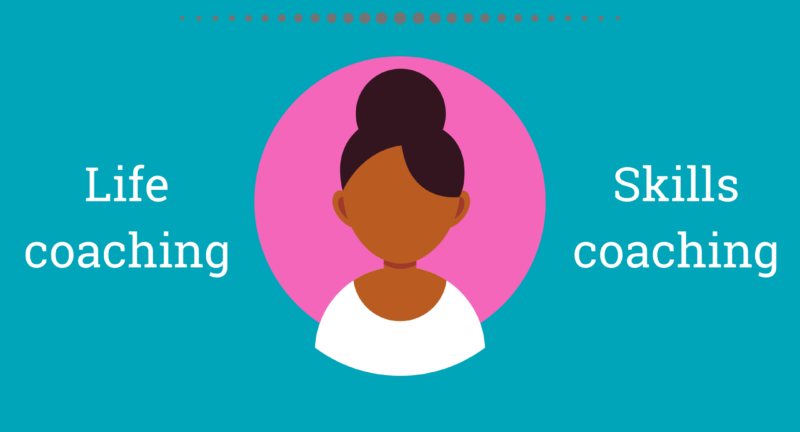
ADHD Diet: What We Eat & Why It Matters If You Have ADHD
We all know that it’s important to eat healthy foods, but did you know that good nutrition can make a huge difference in the management of ADHD symptoms? A poor diet can make anyone feel sluggish, distracted, and even depressed. [1] Add ADHD to the mix, and it is easy to see how a low-nutrition diet can intensify the daily challenges of living with ADHD. Many people find that incorporating nutrition-rich foods into their lifestyle greatly improves troublesome symptoms of ADHD.
That’s why the ADHD coaches at NextStep 4 ADHD are happy to help you navigate the challenges of establishing a nutrient-dense ADHD-friendly diet. From creating time-saving meal prep strategies to eliminating unhealthy food choices, our coaches are with you every step of the way.
In the meantime, continue reading to learn more about nutrition and how it affects those living with ADHD.
Why Good Nutrition Matters
You are what you eat. You’ve heard the saying, but have you ever really thought about it? What you eat can energize, provide essential nutrients, and power all of the major functions of your body.
What you eat and the quality of what you eat has a profound effect on your body. This is why runners often eat a carb-heavy meal before a run; because they know carbohydrates provide energy for the body. The opposite is also true. Poor nutrition impacts the body, too. For example, studies show that diets high in sugar tend to increase cravings and feelings of hunger. [2]
Here are a few benefits of a well-balanced, nutrient dense diet. Good nutrition:
- Can improve brain function
- Can increase energy levels and motivation
- Promotes general good health
- Can enhance your mood
- Can help you maintain a healthy weight
- Can help control symptoms of ADHD [3]
- Can improve sleep habits
- Balances blood sugar levels, which affect all of the above
The takeaway: good nutrition is important for a healthy mind and body, and in the next section, we’ll explore how ADHD can impact your food habits.
How ADHD Can Impact Food Habits
If you struggle with impulsivity or time blindness, you might be tempted to grab a fast meal, and unfortunately, “fast” isn’t always healthy. This isn’t the only way that ADHD can impact food habits. Below is a list of common ADHD symptoms and how those untreated symptoms can impact food habits.
Forgetfulness
Forgetfulness is a common ADHD symptom, and it can increase the likelihood that you forget to go shopping for food or even forget to eat. When you realize how hungry you are, you may then make desperate, unhealthy food choices.
Impulsiveness
If you’re feeling hungry, you might reach for whatever looks appealing in the moment.
Emotional regulation and stress tolerance
If you’re feeling stressed or overwhelmed, you’re more likely to engage in emotional or binge eating. According to the American Psychological Assocation, 38% of adults report stress eating as a way to cope with high stress levels.
Lack of Planning/Prioritization
Planning can be difficult for those with ADHD, and difficulty planning can affect what you eat as well. This may create challenges with:
- Planning shopping trips
- Meal planning
- Setting aside time to prepare healthy meals
In addition, difficulty planning can make it hard to come up with a realistic plan to improve eating habits.
Procrastination
The notion of procrastination is nothing new. It’s been discussed in literature dating back to Ancient Greece! [4] However, procrastinating can make it easy to put off the goal of improved nutrition.
Reduced Appetite
Stimulant medication may reduce your appetite. [5] While a reduced appetite can help prevent overeating (simply because you’re less hungry), a reduced appetite can work against optimal nutrition. If a reduced appetite results in skipping meals, it can make it challenging to consume adequate daily nutrients.
A Balanced ADHD Diet
A balanced ADHD diet looks a lot like a diabetes-friendly diet. Why? Because controlling blood sugar levels is beneficial in countless ways.
Have you ever waited too long between meals and gotten a headache, felt shaky, had brain fog, or become irritable? That’s an indication that your blood sugar levels have dropped to the point of causing physical symptoms. Time to listen to your body and eat! Better yet, plan ahead to avoid blood sugar crashes. By the time you experience symptoms, your body is going to crave simple carbohydrates to quickly raise your blood sugar levels. You likely won’t be reaching for broccoli at this point.
Maintaining healthy blood sugar levels helps to stabilize many symptoms of ADHD and can increase the likelihood of sticking with a high-nutrition diet.
A healthy diet is as much about what you eat as what you don’t eat. A balanced ADHD diet should include:
- Protein with every meal
- Vegetables and/or fruit with every meal
- Healthy fats like omega 3 fatty acids
- Fiber
It’s important to avoid:
- Processed foods
- High-sugar foods
- Artificial sweeteners
- Artificial dyes & preservatives
In addition to avoiding unhealthy additivies, avoid an attitude of deprivation – focus on incorporating healthy foods you love!
It may seem like a big task to overall your diet, but it can be done. Like all endeavors, remember that all journeys start with just one step.
But How Can You Improve Your Diet?
Keep these tips in mind:
- Start small. Consider focusing on one meal of the day. Maybe you want to start eating a healthy breakfast, packing a lunch for work, or learning some healthy recipes for dinner. Whatever it is, decide how many days per week you could do this, and make a plan.
- Before you start, go shopping. All the good intentions in the world can’t override a hungry stomach and nothing to eat but junk food. Make sure that you always have healthy food choices on hand, both at home and at work.
- Consider finding a friend or coworker (or coach!) who will start on a healthy eating plan with you. This adds in a layer of accountability and encouragement.
- Don’t stress over perceived failures. Establishing new habits takes time. It’s normal to fall back to old, easy eating patterns on your road to healthier eating. Just press restart on your healthier choices that same day. Keep at it, and your “fall-backs” will happen less often.
- Make it fun! Find ways to encourage yourself. Research recipes, try new foods, talk with a “foodie” friend who can give you some tips. Make your mealtime aesthetically pleasing – put on some music, clear the table of clutter, sit down and truly enjoy your food.
- Celebrate every small victory. Acknowledge your efforts as well as your successes. This not only feels good and encouraging, but it actually increases the chances of repeating the positive behavior. If you want to succeed with your healthy eating plan, be willing to treat yourself like a good friend.
Ready to Give Your Diet a Makeover? We’re Just a Call or Click Away
At NextStep 4 ADHD, we’re happy to provide 1:1 coaching for ADHD — and you don’t have to make the trip into our office. If you’re struggling to eat a well-balanced diet, we offer online ADHD coaching via telecoaching, coaching over the phone, or in-person coaching in our convenient Kentucky offices in Louisville and Lexington. Call the location of your choice, or send us a message to request more information.
Don’t forget to sign up for a membership so you can stay up-to-date with the latest news!
References:
- Pelsser, Lidy M., Klaas Frankena, Jan Toorman, Huub F. Savelkoul, Anthony E. Dubois, Rob Rodrigues Pereira, Ton A. Haagen, Nanda N. Rommelse, and Jan K. Buitelaar. “Effects of a Restricted Elimination Diet on the Behaviour of Children with Attention-deficit Hyperactivity Disorder (INCA Study): A Randomised Controlled Trial.” The Lancet, vol. 377, no. 9764, 2011, pp. 494-503.
- Penaforte, Fernanda Ro, et al. “Short-Term Impact of Sugar Consumption on Hunger and Ad Libitum Food Intake in Young Women.” Nutrition Research and Practice, The Korean Nutrition Society and the Korean Society of Community Nutrition, Apr. 2013.
- Pelsser, Lidy M. J., et al. “A Randomised Controlled Trial Into the Effects of Food on ADHD.” European Child & Adolescent Psychiatry, vol. 18, no. 1, 2008, pp. 12–19., doi:10.1007/s00787-008-0695-7.
- https://www.psychologicalscience.org/observer/why-wait-the-science-behind-procrastination
- Jeffers, Amy J, and Eric G Benotsch. “Non-Medical Use of Prescription Stimulants for Weight Loss, Disordered Eating, and Body Image.” Eating Behaviors, U.S. National Library of Medicine, Aug. 2014, www.ncbi.nlm.nih.gov/pubmed/25064292.
Related Posts
ADHD Coaching: Everything You Need to Know
An ADHD coach is a coach specifically trained to help adults, teens, and children...
ADHD Myth Series: Is It Okay to Stop Taking ADHD Medications on School Breaks?
With summer drawing closer and closer, many parents of children with ADHD start...


